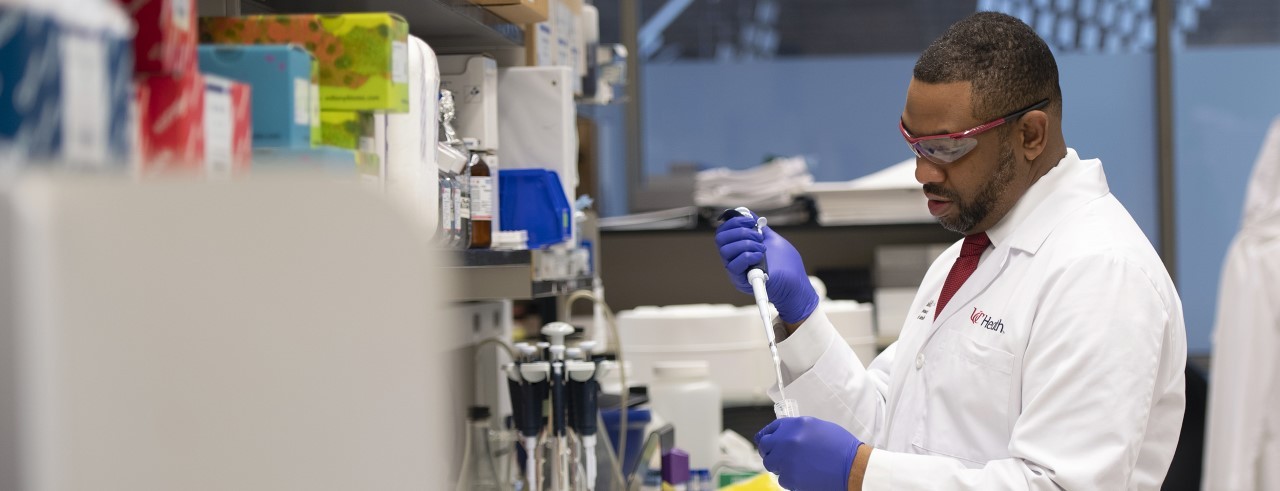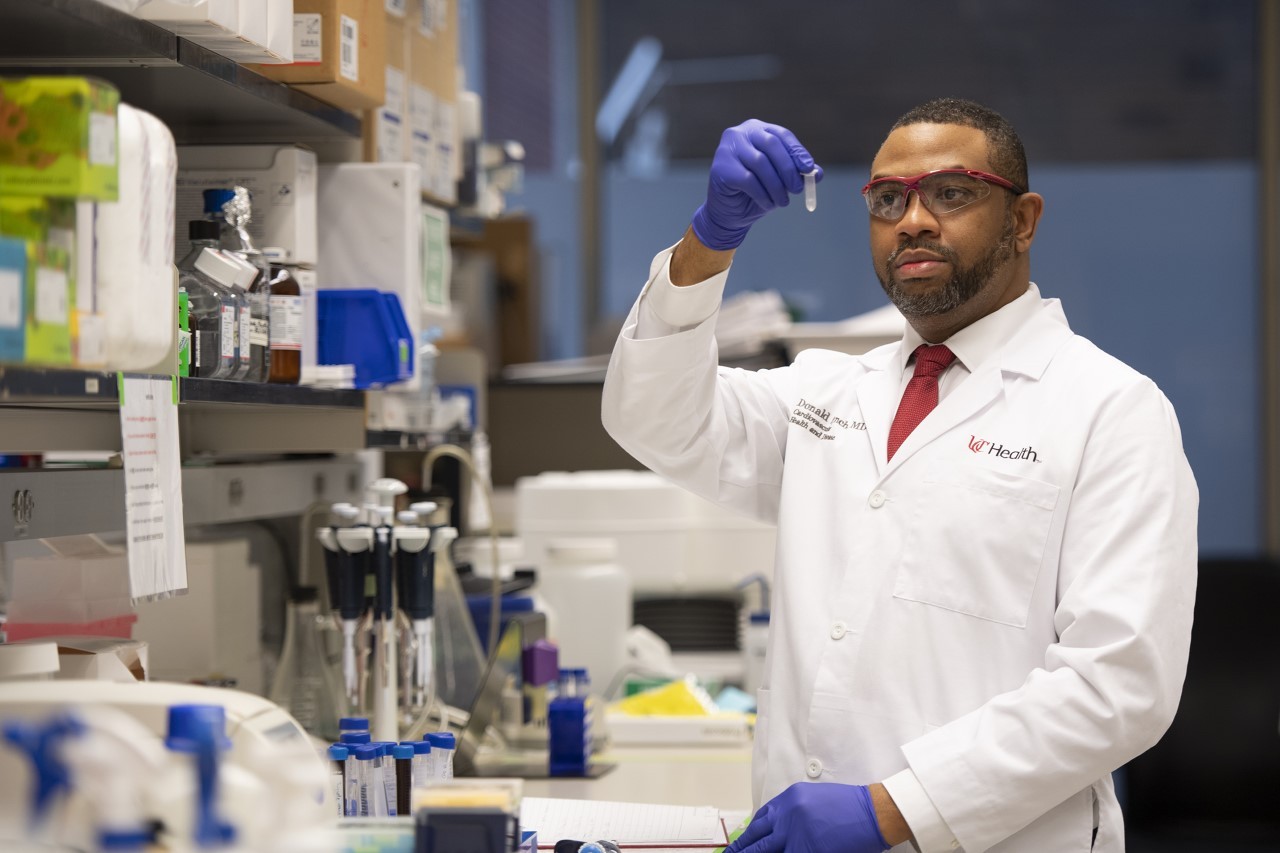
UC cardiologist investigates why the ‘gold standard’ treatment doesn't work well for some
Observational study planned for patients receiving aortic valve replacement
A University of Cincinnati physician-researcher says unlocking the key to how platelets function before, after and during transcatheter aortic valve replacement (TAVR) may provide insight as to why some patients undergoing the heart procedure have better outcomes than others.
“We are looking at how platelets’ ability to contribute to clot formation are impacted by inflammation associated with endovascular procedures such as TAVR,” says Donald Lynch, MD, assistant professor in the UC College of Medicine and UC Health cardiologist. “We hope that these studies will help us understand why some patients have a persistent drop in platelet count which may be associated with excessive bleeding or clotting issues.”
Aortic stenosis, or narrowing of the valve in the blood vessel, occurs when the heart’s aortic valve thickens leading to a reduction in its opening. It affects about 4% of the population over age 75 and is a leading cause of heart failure and the need for transcatheter aortic valve replacements.

Donald Lynch, MD, shown in a UC College of Medicine laboratory. Photo/Colleen Kelley/UC Creative + Brand.
Lynch will conduct an observational study of 150 heart valve replacement patients at UC Medical Center and the University of Kentucky. These patients will undergo TAVR, a procedure in which a catheter-mounted valve is inserted through a small incision in the groin and is minimally invasive compared to open heart surgery. Patients who consent to participate in the study will have blood drawn before the procedure begins, prior to discharge and during clinic follow-ups to determine what biomarkers are predictive of short- and long-term clinical outcomes.
Lynch’s research is supported by a five-year grant of $898,020 recently awarded from the National Heart, Lung and Blood Institute. The research grant number is 1K23HL151872-01. Lynch's work is the embodiment of the university's strategic direction, Next Lives Here.
“TARV has become the gold standard for patients who have a narrowing of the aortic valve,” says Lynch. “Traditionally, the only way to definitely address patients with a narrowed aortic valve was to take them into the operating room, open their chest and take out the old valve and put in a new one. But during the past 14 years, TAVR has become an option for many patients.”

Donald Lynch, MD, assistant professor in the UC Department of Internal Medicine. Photo/Colleen Kelley/UC Creative + Brand.
“The advantage is patients can usually go home the next day,” says Lynch. “Most patients do quite well, but there is a subset of patients that may have problems with clotting leading to a stroke or other issues such as bleeding. My study will help to determine why some patients may develop these issues and help us to find better ways to reduce this risk.”
“We are assessing components of blood itself using samples collected during the procedure to better understand how platelets and coagulation proteins may react differently in older versus younger patients,” says Lynch. “We are trying to determine how to best treat these patients. My study is crucial because it helps to personalize therapies for patients,” says Lynch.
Featured image at top: Donald Lynch, MD, is a physician-researcher at UC who also sees heart patients at UC Health. Photo/Colleen Kelley/UC Creative + Brand.
Next Lives Here
The University of Cincinnati is classified as a Research 1 institution by the Carnegie Commission and is ranked in the National Science Foundation's Top-35 public research universities. UC's graduate students and faculty investigate problems and innovate solutions with real-world impact. Next Lives Here.
Related Stories
UC researcher launches app to connect patients to lifesaving...
May 7, 2025
A cardiologist and researcher at UC’s College of Medicine joined the Venture Lab at the 1819 Innovation Hub to launch High Enroll, an app that links clinical trials with willing participants.
The burning river that fueled a US green movement
May 5, 2025
An article by the BBC takes the reader back to the late 18th and 19th centuries, when US prosperity was defined by the industrial revolution, a time with little regard for the pollutants that came with industrial expansion. UC's David Stradling, professor of history, cited as expert source in the article.
Growing heart failure epidemic calls for prioritizing primary...
May 5, 2025
A rapidly growing heart failure epidemic calls for prioritizing primary prevention, according to a new scientific statement from the American Heart Association published in Circulation in April. The statement reviews the current evidence for predicting heart failure risk and offers risk-based strategies for heart failure prevention.
